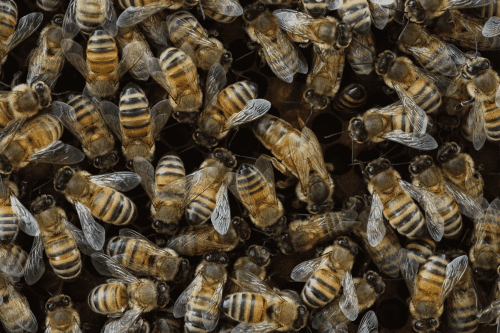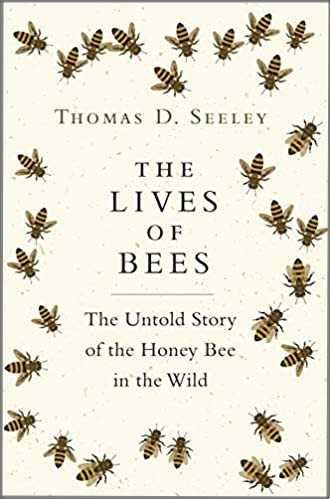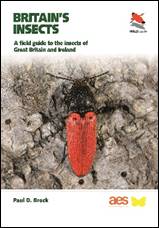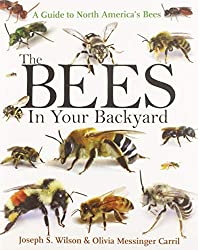What is a Bee Expert Called?
Question:
What do you call a person who is an expert on bees?
The short answer is:
Terms commonly seen are ‘melittologist’
and ‘apiologist’, both are slightly different and are branches within
entomology (the study of insects).
The Name For A Bee Expert
There are a couple of names that are used to describe a person who has a specialist knowledge of bees, and it depends whether the person is studying honey bees specifically, or is studying other wild bee species.
Melittology
A person who studies bees generally, is a melittologist.
According to the Journal of Melittology, the subject of melittology is about “bee biology, ecology, evolution, & systematics”.
Well Known Melittologists
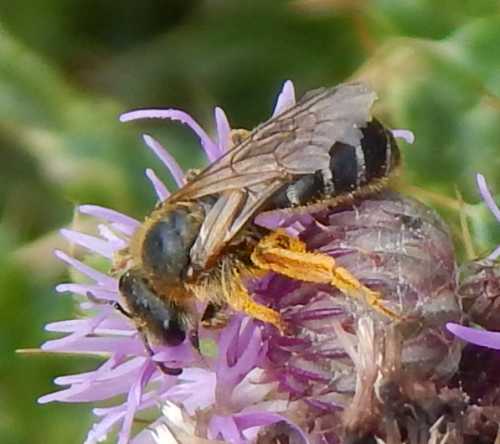 Halictus rubicundus female on knapweed.
Halictus rubicundus female on knapweed.- William Kirby, (1759-1850), (also considered the "founder of entomology"), author of the first scientific treatise on English bees. Kirby produced his first major work, the Monographia Apum Angliae - (Monograph on the Bees of England) in 1802.
- American melittologist, Charles D Michener, author The
Social Behavior of the Bees1 and The Bees of the World. Michener's work includes study of social evolution in
the Halictidae bee family. (Halictidae includes the furrow bees, such as Halictus rubicundus).
- Professor Dave Goulson – English author of A Sting In The Tale and Bumblebee Behaviour And Ecology (among others), Goulson has a particular interest in bumble bees. He is based at the University Of Sussex, England.
Apiologist - The Name For An Expert On Honey Bees
A person with a specialist understanding of honey bees is an
apiologist, a word formed from ‘Apis’ – the genus to which honey bees belong.
There are various related words:
Apiology: The scientific or systematic study of honey bees.
Apiculture: Concerned with the study and
practice of rearing and keeping of honey bees.
Apiculturist: A person who engages in the study and practice of the rearing and keeping of honey bees.
Apiarist: A ‘bee farmer’ – a person who keeps an apiary for the purpose of harvesting products like honey, usually along commercial lines.
Honey bees are possibly the most widely studied and researched living organism on the planet, after humans.
Some years ago, I did once read that most scientific studies published in the world, related to humans, and after that, the second largest volume of scientific works relates to honey bees specifically (as opposed to other bee species, about which there are comparatively fewer published research papers).
Famous
Honey Bee Experts
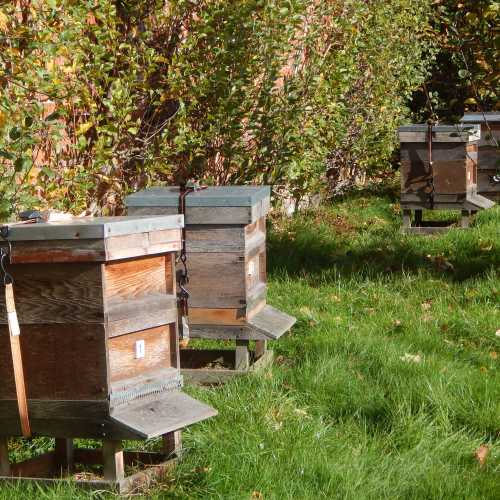
- Charles Butler, (1560-1647), was important in the history of beekeeping in England as an early beekeeper
and researcher. He is sometimes known as ‘the father of English
beekeeping. It was Butler that noticed that bees produce beeswax
themselves rather than collecting it from plants. His famous book ‘The
Feminine Monarchie’ was published in 1609.
- Lorenzo Lorraine Langstroth (1810 -1895) is known as the
father of American beekeeping. It is Langstroth who invented the
Langstroth beehive, which is still in use worldwide today.
- Jan Dzierzon, (1811-1906), a Polish apiarist who discovered parthenogenesis in bees.
- Karl von Frisch, (1886-1982). Born in Austria, Von
Frisch studied animal behaviour, particularly honey bee communication, and he
was the first person to accurately describe and interpret the ‘waggle
dance’. He was awarded the Nobel prize in 1973 for his pioneering work in
communication between insects.
- Karl Kehrle (aka "Brother Adam") (1898-1996) was a
Benedictine monk at Buckfast Abbey in Devon, England. He was a beekeeper,
and an authority on bee breeding. It was at Buckfast Abbey that he
developed the Buckfast bee.
- Thomas D. Seeley, world-renowned author of Honey Bee Democracy and The Wisdom of the Hive. American Professor based at Cornell
University.
He is known for his work on swarm intelligence, problem solving and interaction in honey bees (and much more!).
More recently he wrote The Lives Of Bees. Currently his main interest is in conservation biology. - Fictional expert – Sherlock Holmes!
Entomology
Both melittology and apiology are a branch of entomology. Entomology is the scientific study of all insects and their relationship with the environment, plants, humans and other animals.
So, in a sense, it might be said that apiology is a subdivision of melittology, and that both are branches of entomology. As an aside, the study of pollen in honey is called 'melissopalynology'.
The Work Of Melittologists, Apiologists (And Entomologists)
What sort of work do apiologists and melittologists do?
A range of occupations can be undertaken by apiologists and melittologists.
Perhaps most work is undertaken within the realm of academic institutions. The research can vary from basic science such as genetics, bee physiology and biochemistry, bee diseases and parasites to research on ways to protect bees and their environments, conservation and bee pollination.
Apiologists may find other work related to the commercial beekeeping sector.
Government bodies may also employ specialists, often supporting the work of the agricultural, horticultural and environment sectors due to the important role bees play in pollination and food production (both from the perspective of plant pollination and honey for human consumption).
Other government agencies concern themselves with the regulation of insecticides and other agrochemicals, where testing on insect species (including bees) is a key component, as well as bee diseases.
The agrochemical industry and consultancies supporting them, may engage workers with specialist backgrounds in entomology, apiology and/or mellitology during the development and testing of their agrochemicals.
For entomologists there is a wider choice of career opportunities.
For example, the Liverpool School Of Tropical Medicine employs entomologists within their Vector Biology department to support the study of insect spread diseases, prevention and treatment2.
Likewise, the pharmaceutical industry and various public health bodies may employ entomologists to support the development of treatments and vaccinations against insect-transmitted illnesses.
Forensic entomology is the study of insects and arthropods in criminal investigation, for example, as a means to understand a time and cause of death3.
References
1. Michener, C: The Social Behavior of the Bees
2. https://www.lstmed.ac.uk/research/departments/vector-biology
3. The use of insects in forensic investigations: An overview on the scope of forensic entomology
If you found this page helpful or interesting, I'd really be grateful if you would share it with others - if not this page, perhaps another, such as Gardening For Bees.
Thank you so much :) .
